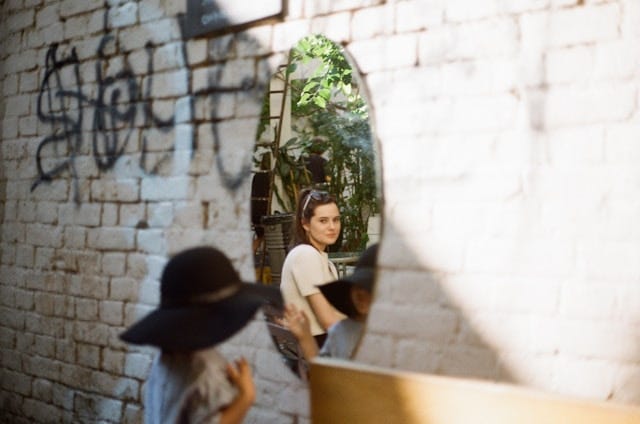I am currently enrolled in a leadership training programme for women, and it starts with working on our inner selves. For someone who has done a lot of self-analysis, taken countless personality tests, and was once a hard-core fan of the MBTI, I still learn a lot of new insights into myself.
When I started solo backpacking, it was as much a journey outward into the world as it was inward into myself. I was often hyper-aware as I explored new terrains, observed different cultures, tasted new foods, and immersed myself in novel experiences at alarming speed and quantity. In moments of awe, I would feel a subtle shift within me—thousands of thoughts rushing through my mind, rewiring who I was. When night fell, I retreated into the hostels, often just reading or writing in a corner of a lobby, especially if it was one of those with good relaxing vibes. Sometimes I may feel especially extroverted and talk to fellow backpackers for tips and maybe even join up for the next day's adventure. But more often than not, I retreated inward, and pondered about life.
Alone out there, with just me against the world, it is almost impossible not to raise some self-awareness.
But that was just the surface of self-awareness. Motherhood, however, was the real awakening. Giving birth to another life and having them tethered to you as if you are their entire world brings up profound existential questions. And there’s nothing like a toddler or a young child, to bring out all your childhood memories and traumas, surprising yourself at how little it takes to trigger you, to push your buttons and to bring in floods of emotions you have long stored away in the deepest recesses of your mind.
This leadership training has humbled me again as someone who once thought she knew herself well and what she stood for. It has shown me that learning about oneself is a lifelong journey—a never-ending process of undoing and remaking. And it can be one of the greatest gifts you can give yourself.

Here’s what we are going to do
For the next two weeks, we will introduce small moments of self-awareness into our daily lives. We will observe ourselves—only to observe, recognize it as it is, acknowledge it, and then let it go. This activity is inspired by Thich Nhat Hanh’s The Miracle of Mindfulness.
For example, when a feeling of sadness arises, immediately recognize it: “A feeling of sadness has just arisen in me.” If it continues, acknowledge it. If there are no feelings, recognize that there aren't any. If you notice tension in your shoulders or neck, acknowledge it: “I feel tension in my shoulders and neck.” If possible, allow yourself to release and relax those areas.
Each day, set aside 5 minutes to check in with yourself:
Observe how you feel emotionally.
Do a quick body scan—notice any tension, relaxation, or discomfort.
Acknowledge them and then let go.
After two weeks, take a moment to reflect:
What have I learned about myself?
Which emotions or sensations showed up most often?
What surprised me the most during this practice?
For those who want to go deeper
In addition to the above, you can also incorporate these practices:
When you feel triggered or stimulated, pause. Take note of what is happening within you and acknowledge it. Permit yourself to stay in the space between the trigger and your response. Sometimes, choosing not to respond could be the best response.
“Between stimulus and response there is a space. In that space is our power to choose our response. In our response lies our growth and our freedom.” - Victor Frankl.
Refine your emotional awareness. Instead of broad labels like ‘stressed’ or ‘happy,’ try to pinpoint your feelings: Is it frustration or disappointment? Excitement or contentment? The more precise you are, the better you can understand yourself.
Ask yourself these, too, at the end of two weeks:
How did I respond to my emotions and sensations?
What new awareness have I gained about myself?
How can I continue using the space between stimulus and response?
Share with us
I’d love to hear about your practice of self-observation in your daily life. Let’s inspire each other!





Enjoy your leadership course! I'm the same, I've done countless courses but there's always something new to learn!
I love the tip of non-judgmental observation. Or even taking it a step further and looking onto our observations with love. For example, saying: "Ah there you are again old friend," for a behaviour in ourselves we used to judge harshly.